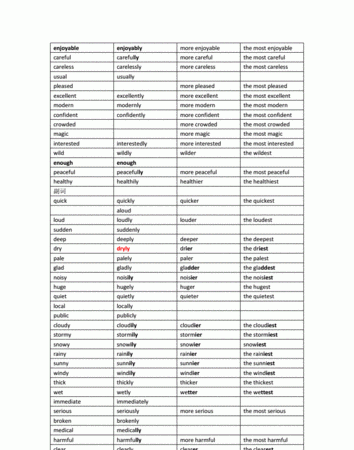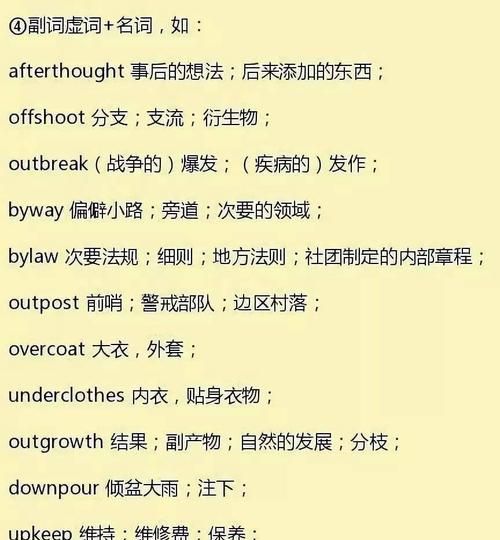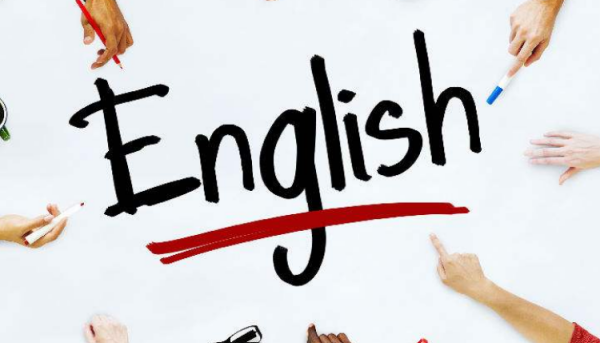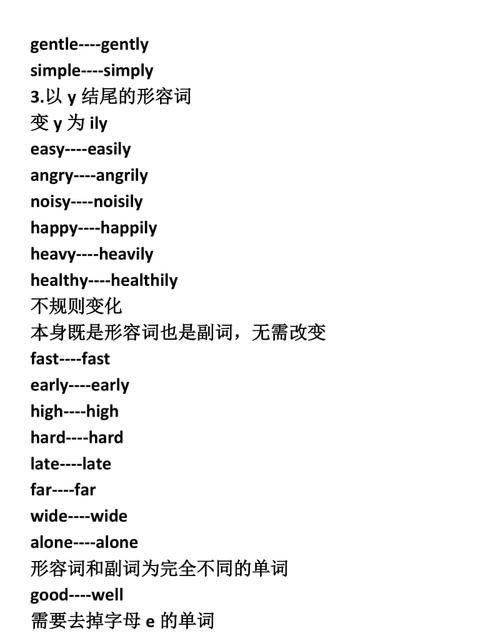本文目录
小学英语形容词和副词的用法
1. 副词的用法:
(1)修饰动词: He works hard. He speaks slowly.
(2)修饰形容词: The flower is very beautiful.
(3)修饰其他副词: He works very hard.
(4)修饰名词: Even a child (or Even he)can do it.
(5)修饰全句: Probably he will come back.
(6)修饰副词片语: He came exactly at two o‘clock.
(7)修饰副词子句: He started soon after we came.
2. 副词的位置
(1)副词修饰形容词、副词(片语或子句)时,通常放在前面。
The mountain is very beautiful.
He came long before the appointed time.
(2)修饰动词的副词
不及物动词 + 副词 She speaks well.
及物动词 + 受词 + 副词 She speaks English well.
(3)表确定时间或场所的副词, 通常放在句首或句末, 放在句首时语气较强。
She was born in Taipei in 1948.
(4)always, never, often, sometimes, usually等频率副词的位置。
(A)在一般动词前: They always say so.
(B)有动词be时,在be动词后: I am always busy.
(C)有助动词时, 在助动词和本动词间: This job will never be finished.
(5)置于句首修饰全句: Fortunately he succeeded in the examination.
(6)同类两个以上的副词须依 (单位较小者 + 单位较大者)的顺序排列。
He lives at Taichung, in Taiwan, Republic of China.
(7)有两个以上不同种类的副词修饰语时, 其顺序为: 地点+状态+次数+时间。
She arrived there safely the other day.
3. 时间副词
(1)Time“时候”: 可以用作when的答语, 如: late ( = at a late time), now ( = at this time), presently (= at the present time), then ( = at that time), just, nowadays, today, etc.
I’ve just heard that you are leaving us. ( = at this very moment)
Nowadays, many teenagers have long hair. ( = at the present time)
注: 两个以上表时间的副词须依“单位小的时间+单位大的时间”排列。
I‘ll see you at nine on Monday.
(2)Duration“期间” : 用来作how long的答语,如:
momentarily, temporarily, for many weeks, long, from May till August, etc.
Has he been ill long? Yes, he has been ill since the end of May.
He was away from school (for)four or five weeks.
(3)Frequency“频率”: 用来作how often的.答语,可分两种:
(A)非限定频率:always, usually, often, sometimes, seldom, ever, etc.
The sun always rises in the east. My brother rarely writes to me.
(B)限定频率:daily, hourly, monthly, annually, twice, everyday, once, etc.
I have been in Singapore once.
We have English lessons every other day.
注:以上三种时间副词在一起时,其顺序为“期间+频率+时间”。
I was there for a day or so every year during my childhood.
注: Seldom, rarely, never等有否定意义的频率副词置于句首,要将助动词或be动词放在主词之前。
Seldom do we hear such fine singing from school choirs.
4.地方副词: 表示where?的副词,也包括“动态方向”的副词,如:
below, by, down, elsewhere, far, here, home, in, locally, near, off, opposite, out, around, away, back, outward(s), right, sideway(s), upward(s), etc.
(1)地方副词通常置于句尾,加强语气时可放在句首。
He lives in a small village. They are not there.
(2)两个地放副词并列时,地方确定的副词在后面,地方不确定的副词在前面。
The children running around upstairs.
(3)两个以上的地方副词须依“小地方+大地方”的顺序排列。
Many people eat in restaurants in London.
5. 几个特殊副词的用法:
(1)enough, too,
(A)enough放在所修饰的形容词和副词后面; too放在形容词和副词前面。
She’s old enough to do some work.
She‘s too old to do any work.
(B)too…to + 动词“太…而不能”, enough to + 动词“足够可以”(= so…that)
I am too poor to afford such extravagance.
= I am so poor that I cannot afford such extravagance.
You are rich enough to keep a maid.
= You are so rich that you can keep a maid.
(2)very, much,
(A)very修饰形容词,副词; much (或very much)修饰动词。
He spoke very carefully.
It is much talked about these days.
(B)Very修饰原级形容词及副词;much修饰比较级,最高级的形容词及副词。
our work is very good.
This is much better.
This is much (by far)the best.
(3)already, yet, still,
(A)Already用于肯定句,作“已经”解; yet用于否定句,作“还”解,用于疑问句作“已经”解。
I already like him. (= I have by this time come to like him.)
He can’t drive yet. (= He can‘t drive up to this time.)
注:Already用在疑问句或否定句时,表惊讶。
Have you already seen him? (= That was quick.)
(B)Still表动作或状态的持续,作“仍然”解。
I still like him. (= I continue to like him.)
注:Still放在动词前后,有时句意不同。
He is still standing. (continue to stand)
He is standing still. (= standing motionless)
(4)only和 also常随句中位置的变动,句意和语气也会改变。
Only John phoned Mary today.
John phoned only Mary today.
John phoned Mary only today (today only)。
(5)just, merely, purely, simply等字放在所修饰的词语之前; alone则放在其后。
You can get a B grade just (merely, purely, simply)for that answer.
You can get a B grade for that answer alone.
6.副词应注意的事项:
(1)有些字可当形容词又可当副词, 例如: early; past; half; long; straight; fast; hard; quick; deep; slow; pretty; awful; wrong; right; high; late; hourly; early; weekly; etc.
We had an early breakfast. (形容词)
We went by a fast train. (形容词)
We had breakfast early. (副词)
Don’t speak so fast. (副词)
(2)above; then; after; up; down; away; home等地方或时间副词亦可作形容词。
The above statement (= the statement which is above)
(3)有些形容词变为副词, 可在字尾加ly, 也可以不加, 不过在字义上不同。
(A)easy“安适地”; easily“容易地”;
Stand easy!
He‘s not easily satisfied.
(B)clear ( = completely“完全地”; clearly“显然地”)
The bullet went clear through the door.
The thieves got clearly away.
(C)high“高”; highly“很; 非常”
The birds are flying high.
He was highly praised for his work.
(D)Slow和slowly当副词时同义, 但slow比slowly语气强。
I told the driver to go slow(er)。
Drive slowly round these bends in the road.
(E)hard“辛苦地”; hardly“几乎不”
He works hard. (= He is a hard worker.)
He hardly does anything nowadays. (= He does very little nowadays.)
(F)just“刚才; 仅”; justly“公正地”
I’ve just seen him.
He was justly punished.
(G)late“迟”; lately (= recently)“最近地”
He went to bed late.
I haven‘t seen Mr. Green lately.
(H)Pretty (= fairly, moderately)“十分, 颇”; prettily (= in a pretty way, attractively)“漂亮地”
The situation seems pretty hopeless.
She was prettily dressed.
(I)near“接近地”; nearly“几乎”
The time for the examination is drawing near.
I nearly missed my train.
注:formally和formerly是分别由形容词formal“正式的”, former“以前的”加ly形成的副词。

高中英语单词和初中英语单词区别
>> almost, nearly都是副词,意为“几乎,差不多” >> almost一般不带语气,表示“这事情已经这样了。” nearly一般带点语气,表示“这事情居然都已经这样了!” >> 另外almost多表示时间、程度、距离、进度,且almost可以修饰more than, too, nothing, nobody, nowhere, no one, none, never等词,nearly则不行。 >> not nearly 表示“一点也不,决不”,而not almost则是“还没有那么多”。

字典的英语单词是什么
几乎不的英语单词是hardly。
例句:
1、他几乎不费劲儿就取得了决赛权。
He hardly needed to break sweat to reach the final.
2、那是一个几乎不露一丝痕迹的笑。
It was the barest hint of a smile.

重点词汇:
hardly 几乎不 ; 几乎没有 ; 尤用于can或could之后,主要动词之前,强调做某事很难 ; 刚刚 ; 才。
needed 需要 ; 必需 ; 有必要 ; need的过去分词和过去式。
break 打破 ; 破,裂,碎 ; 弄坏 ; 损坏 ; 坏掉 ; 弄破。
sweat 汗水 ; 汗 ; 出汗 ; 流汗 ; 一身汗 ; 繁重的工作 ; 艰苦的劳动 ; 累活儿 ; 艰苦努力 ; 运动服 ; 渗出水分,结水珠 ; 辛苦地干 ; 担心 ; 焖。
reach the final 【体】进入决赛。
英语单词副词什么意思
比如hard,做形容词时是硬的,困难的的意思,做副词时是努力地的意思,hardly是副词,但却是几乎不的意思。

以上就是关于几乎不的副词英语单词 ,小学英语形容词和副词的用法的全部内容,以及几乎不的副词英语单词 的相关内容,希望能够帮到您。
